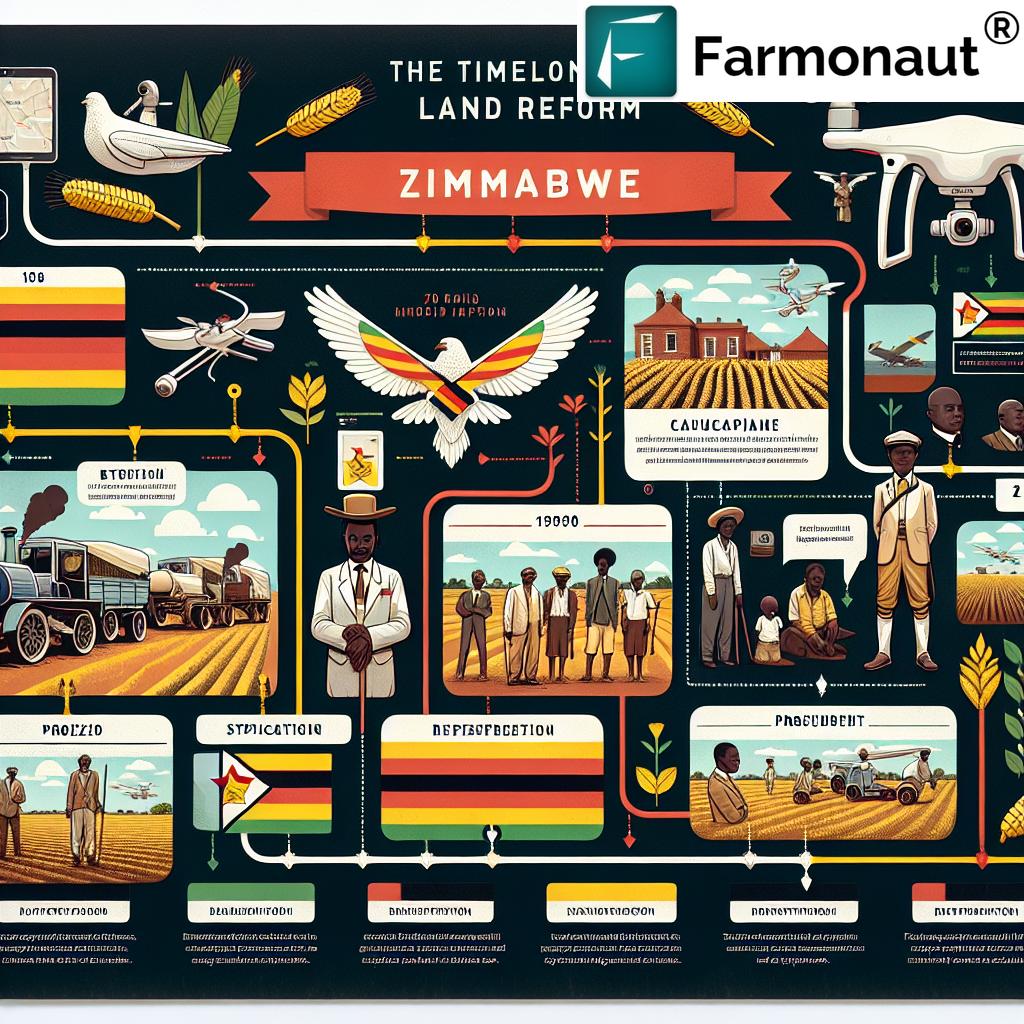Unveiling Zimbabwe’s Land Dilemma: Mnangagwa Challenges British Reparations in Shocking Twist

In a surprising turn of events, President Emmerson Mnangagwa of Zimbabwe has ignited a fierce debate on Zimbabwe land reform and colonial reparations, challenging the longstanding narrative surrounding land ownership and compensation in the southern African nation. This bold move has thrust the Zimbabwe land compensation debate back into the international spotlight, raising questions about historical injustices and the path to national healing.
Mnangagwa’s Controversial Stance on Land Compensation
Speaking at a recent gathering of the Zimbabwe National Elders Forum (ZNEF) at State House, President Mnangagwa made a statement that has sent shockwaves through diplomatic circles. He asserted that Britain, as the former colonial power, should have been the first to offer compensation to Zimbabwe for the land seized during the colonial era. This statement comes at a time when Mnangagwa’s government is preparing to compensate white farmers for improvements made to the land that was redistributed during the controversial land reform program of the early 2000s.
The President’s remarks have effectively turned the tables on the Zimbabwe-UK relations regarding land issues. By challenging British reparations, Mnangagwa has opened a new chapter in the ongoing saga of Zimbabwe colonial land injustices.
Historical Context: The Roots of Zimbabwe’s Land Dilemma
To understand the gravity of Mnangagwa’s statement, it’s crucial to delve into the complex history of land ownership in Zimbabwe:
- Colonial Era: British settlers seized vast tracts of fertile land from indigenous Zimbabweans.
- Independence: Despite promises of land redistribution, the “willing buyer, willing seller” approach led to slow progress.
- Fast-Track Land Reform: In 2000, the government initiated a controversial program to reclaim land from white farmers.
- Economic Fallout: The rapid land redistribution led to a decline in agricultural productivity and economic challenges.
This historical backdrop sets the stage for the current Zimbabwe land compensation debate, which has been a contentious issue both domestically and internationally.
The Call for British Reparations: A New Perspective
President Mnangagwa’s call for British reparations is not without precedent. He pointed to recent actions by other former colonial powers:
- The UK’s acknowledgment and apology to the Mau Mau in Kenya
- Germany’s reparations to the Herero, Nama, and Mbanderu peoples of Namibia
These examples of colonial apologies in Africa have set a precedent that Mnangagwa believes should extend to Zimbabwe. “We wonder,” he stated, “when will the rest of us in former colonies receive similar apologies?”

The Complexity of White Farmer Compensation in Zimbabwe
While challenging British reparations, Mnangagwa’s government is simultaneously addressing the issue of white farmer compensation in Zimbabwe. This dual approach highlights the complexity of the situation:
- The government plans to compensate former white farmers for improvements made to the land.
- This compensation is seen as a step towards reconciliation and economic recovery.
- However, Mnangagwa argues that these funds could have come from British reparations.
This stance on white farmers in Zimbabwe represents a delicate balancing act between addressing historical injustices and moving towards national healing.
Zimbabwe National Healing: A Path Forward
The concept of Zimbabwe national healing is central to Mnangagwa’s approach. He emphasized that true national healing cannot be achieved without addressing the grievances of all parties involved in the land issue. This includes:
- Acknowledging the pain of displaced white farmers
- Recognizing the historical injustices faced by indigenous Zimbabweans
- Seeking a resolution that promotes unity and economic progress
The President’s stance suggests that Zimbabwe national healing land reform must be a comprehensive process that addresses both colonial-era injustices and the more recent land redistribution challenges.
The Role of the Zimbabwe National Elders Forum
The Zimbabwe National Elders Forum (ZNEF) plays a crucial role in this unfolding drama. As a body that seeks to leverage the knowledge and expertise of its members to enhance national development and inform policy formulation, ZNEF’s involvement adds weight to the ongoing debate.
Chairman Reverend Felix Mukonowengwe echoed Mnangagwa’s sentiments, stating, “The people who were removed from their fertile lands have not been compensated, and there has been no voice to say we are sorry. We are here to tell Zimbabwe and the world that these people must be compensated somehow.”
International Implications and the Future of Zimbabwe-UK Relations
Mnangagwa’s challenge to Britain has significant implications for Zimbabwe-UK relations and the broader international community:
- It reopens discussions on colonial-era responsibilities and reparations.
- It may impact ongoing negotiations for Zimbabwe-UK land dispute resolution.
- It could influence other African nations to seek similar acknowledgments from former colonial powers.
The international community will be watching closely to see how this bold stance affects Zimbabwe’s diplomatic and economic relationships, particularly with the UK and other Western nations.
The Way Forward: Balancing Justice and Progress
As Zimbabwe grapples with this complex issue, several key considerations emerge:
- The need for a balanced approach that addresses historical injustices while promoting economic recovery
- The importance of transparent and fair compensation processes for all affected parties
- The potential for innovative solutions that could involve international mediation or support
The path forward will require careful navigation of these sensitive issues, with the goal of achieving true national healing and economic prosperity for all Zimbabweans.
Conclusion: A New Chapter in Zimbabwe’s Land Saga
President Mnangagwa’s challenge to British reparations marks a significant moment in Zimbabwe’s ongoing struggle with land reform and colonial legacy. By questioning the very foundation of the land reform process while simultaneously addressing the needs of white farmers, Mnangagwa has opened a new chapter in this complex narrative.
As the debate unfolds, it is clear that the resolution of Zimbabwe’s land dilemma will require thoughtful consideration of historical injustices, current economic realities, and the aspirations of all Zimbabweans for a prosperous future. The world watches with interest as this southern African nation navigates these turbulent waters, seeking a path to reconciliation, justice, and economic revival.
For those interested in staying updated on agricultural developments and land use monitoring in Zimbabwe and beyond, consider exploring the innovative solutions offered by Farmonaut:
Access real-time satellite data and weather information for agricultural planning:
For developers looking to integrate agricultural data into their applications:
Download the Farmonaut mobile app for on-the-go agricultural insights:
















